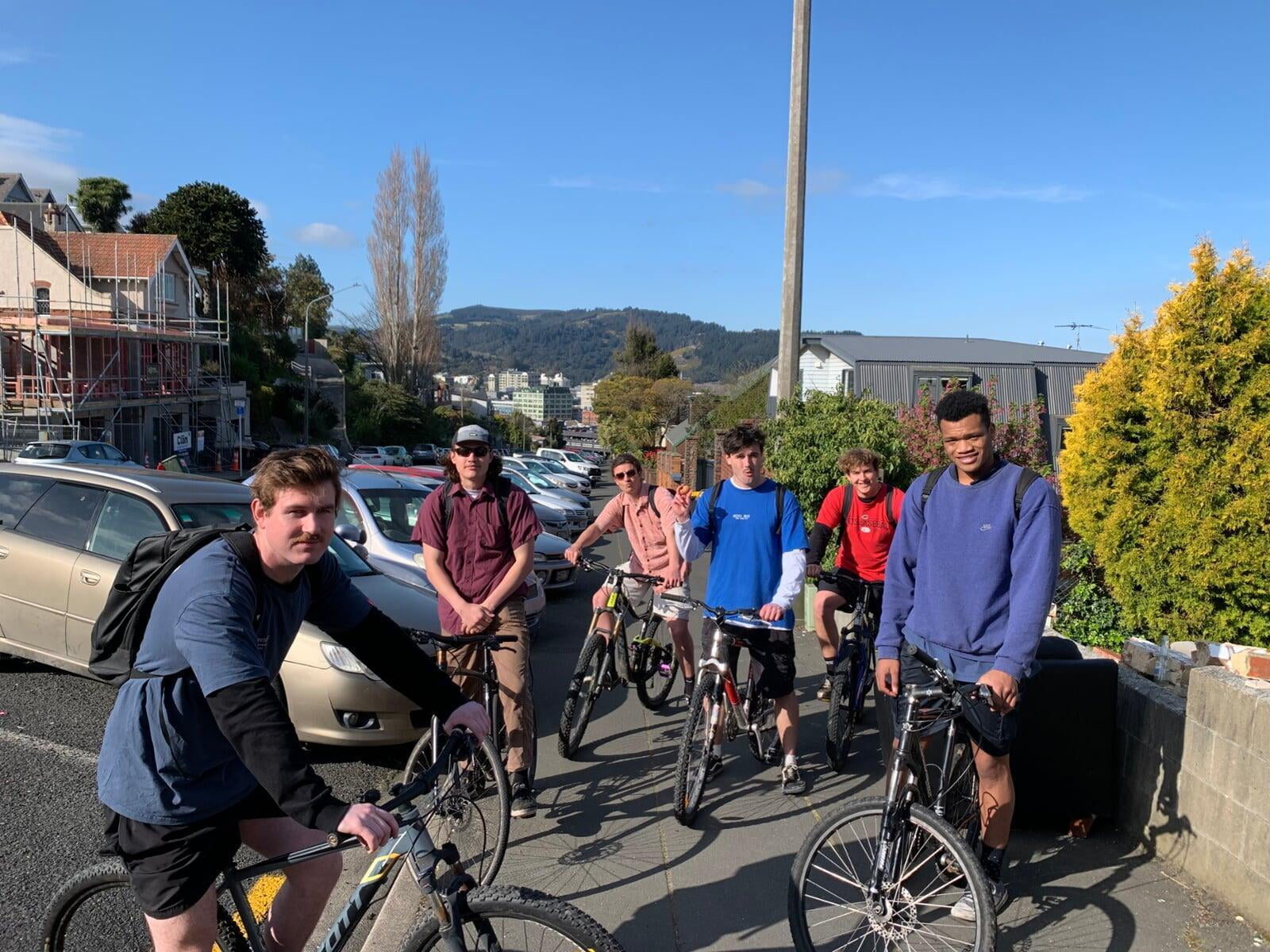Every week, a vanload of rangatahi (youth) head down to the Dunedin City Council-owned landfill in Green Island, accompanied by Malcam Charitable Trust youth worker Alex Gorrie, to assess and process bikes destined to be landfilled. The bikes that make the cut head back to the Malcam headquarters with the team, and the bikes that don’t are stripped for scrap metal and rubber recycling.
Bikes@Malcam is a programme that provides afterschool sessions for different age groups, high school programmes and opportunities for rangatahi in alternative education to repair bikes that would have originally gone to landfill. In the four years that it’s been running, more than 1400 bikes have been diverted from landfill, equating to almost 17 tonnes.
The Bikes@Malcam ethos is about providing lifelong skills for rangatahi, as well as teaching them about waste minimisation and community mindedness.
“Sustainability is integral to the programme,” Alex says.
“Sometimes we find bikes worth $600, $700 that have been thrown out, and they only need air in their tyres. I often tell the kids how ridiculous it is that someone would throw that away.
“We are trying to change the idea of what is waste and what needs to go to landfill.”
Alex says it’s important to teach rangatahi the value of repairing items, and it gives them a sense of pride to see the bikes they’ve repaired go to families in need. If a student wants to take a bike home for themselves, Alex expects them to repair three to five bikes in return.
“Some of these students aren’t fitting in well at school, and more often than not they are really good at practical stuff. This gives them the opportunity to have their skillset valued.
“I’m absolutely blown away by some of the 15, 16 and 17-year-olds who understand how to put things together but they often have no space to shine. To have a space and a community where the mastery of those skills are appreciated is pretty valuable.
“The generosity element of the process also gives them opportunities to see the value in their work. They can see how they’ve contributed to the community. For example, they can see that they’ve helped a former refugee whānau who have resettled in Ōtepoti (Dunedin) and now have a bike to use. They can see how it all fits together.”
Everything has a purpose - even the bikes that can’t be repaired, Alex says.
“Some of the bikes we receive are unfixable, so we strip them down for parts or scrap metal - steel, aluminimum and rubber. The rubber is collected from the Green Island resource recovery centre for recycling and the metal is taken down to scrap metal dealer and exchanged for money.
“We put the money into a pool that we use to provide helmets or safety gear for those whānau who don’t have the means to buy them.”
Catherine Gledhill, Dunedin City Council waste minimisation supervisor, said the council approached the Malcam Charitable Trust about four years ago, after the contractor who operates the landfill and Rummage second-hand store was unable to sell second-hand bikes for safety reasons.
“People kept dropping off bikes – they receive about 10 bikes a week - and some of those could be ridden right out of the gate.
“The easy solution would have been to send the bikes to landfill or straight to scrap metal. But we knew there was potential for some of those bikes to get further use. We wanted the bikes to go back into the community.”
The Bikes@Malcam programme had slowly built up since then, with the council supporting it with funding, a storage compound at the landfill and recently providing alternative workshop facilities.
“This is a proven project. They have gotten themselves to a point where we have confidence that what they do is well organised and just amazing.
“This is not just about waste minimisation – there is a real social aspect to it as well. One thing that we are particularly happy with, is that the Trust is engaging with schools so more students can be involved with the programme and help with refurbishing and dismantling the bikes.”
Both Catherine and Alex are passionate about trying to educate people to make good spending decisions.
“These bikes might not look as nice and shiny as a new one but they’re getting a second life after use, or possibly a third and fourth life,” Alex says.
Catherine emphasises that high quality second-hand bikes can be better and have a longer lifespan than a newer, cheaper bike.
"Anecdotally, we can’t fix about 30% of the bikes and they go to the scrappers. Most of them haven’t seen much life – maybe one or two years – but the componentry of them is already rusted and has become potentially dangerous.
“We once found a beautiful racing bike from the 1970s, and it had no rust at all. It just needed a new inner tube and a bit of a polish up and it was good to go. This was a 50-year-old bike that was in a better condition than something that was one or two years old.”
For more information about Malcam Charitable Trust click here.

